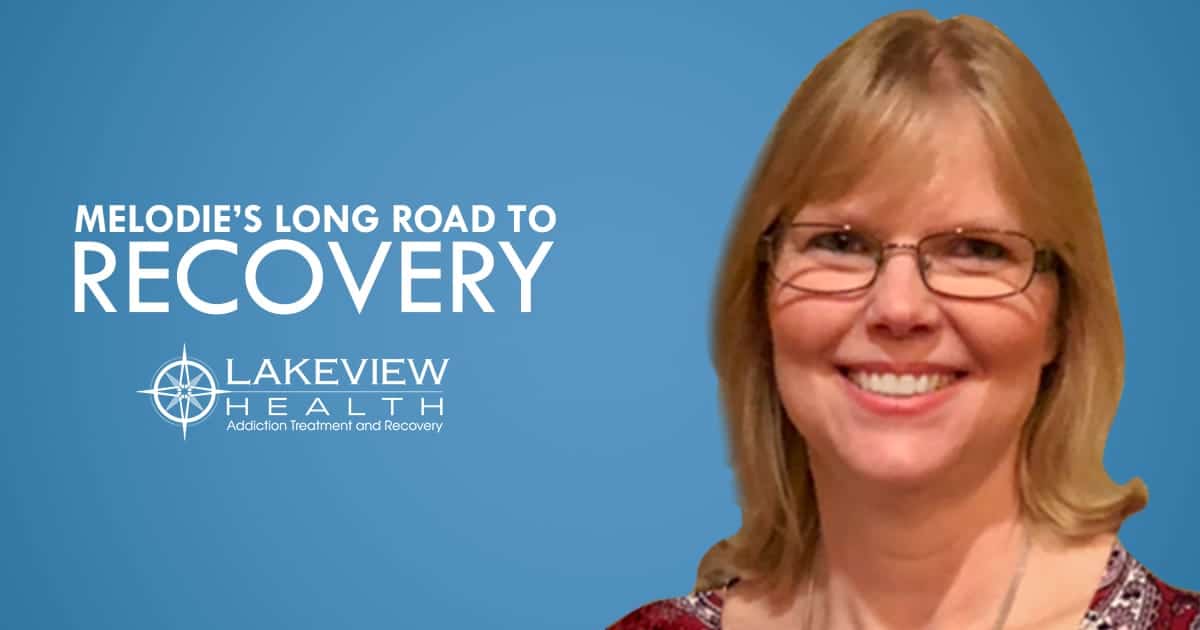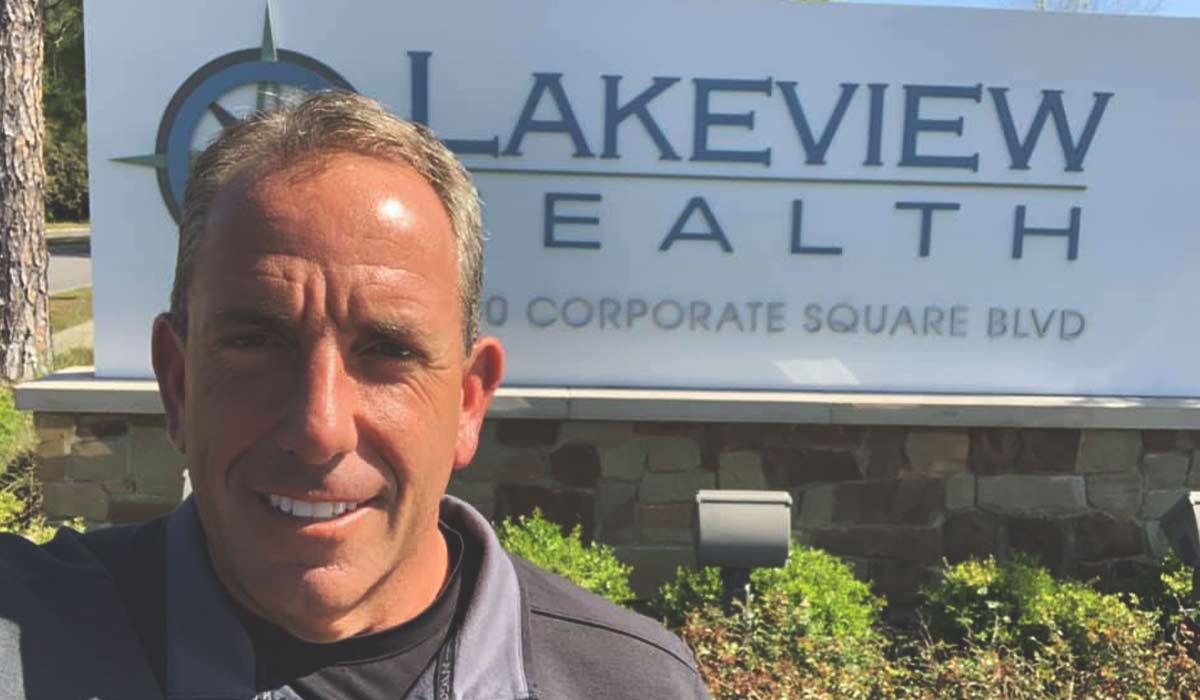

By: Lakeview Health
Stories of Recovery: Melodie’s Long Road to Recovery
Recovery from addiction doesn’t always take hold the first time around. Overcoming addiction is a tough battle, requiring courage and determination. Melodie found this out the hard way. The youngest of four children, she was born and raised in Jacksonville. The 45-year-old struggled with anxiety issues most of her life and started self-medicating with alcohol as a teenager. “Once I took my first real drink at sixteen, it felt like I had found something that takes that anxiety away,” she recalls. By the time she was in her twenties, Melodie was drinking on a regular basis. At 22, she became pregnant, and she didn’t handle the stress of being a young mother too well. She married the father of her baby, but the marriage only lasted five years. Melodie tried to control her alcohol consumption, but it became progressively worse over the years. “The last fifteen years before I got sober, I was drinking heavily pretty much every day,” she says. “The final five years, I was a blackout drinker.” In 2005, Melodie suffered another complication of her alcohol use disorder. During a fall, she fractured the tibial plateau in one of her knees. This is a break of the upper part of the shinbone involving the knee joint. The accident eventually led to arthritis with persistent pain. In August 2017, Melodie had total knee replacement surgery. Chronic pain tends to exacerbate existing addiction problems. A significant number of patients requiring addiction treatment suffer from chronic pain, making it a fairly common co-occurring condition. In many cases, they have been using opioids or other habit-forming substances to deal with pain issues, often with negative results. One of the specialties of the Lakeview Health team is treating substance use disorders and chronic pain conditions simultaneously. Lakeview’s pain specialist Adrian Blotner, M.D., favors a three-pronged approach involving healthy physical activity, non-habit-forming medications, and stress management and lifestyle adjustments. Prior to the accident, Melodie drank to “check out,” as she puts it—to forget about her anxiety for a little while. After the fracture, she drank because she “needed it.” Melodie tried to hide her drinking from friends and family and did her best to keep up with the facade at work. In 2014, Melodie had a gastric bypass operation. “After the surgery, I was not allowed to have carbonated drinks. I had always drunk a lot of beer, so I started drinking wine instead,” she says. “My alcoholism really took off after that. A high percentage of people turn to alcohol after this surgery because they no longer get enough food.” Melodie’s alcohol use disorder was tough on her son, Ryan. “I drank almost his whole life. My son is 22 now, and I drank for 23 years. Ryan did not handle it well. He would argue and fight with me. He tried to hide my liquor, but I would usually find it.” Melodie knew she had a problem, but she was still not ready to embrace sobriety. In October 2015, she went to Lakeview Health for substance use disorder treatment for the first time. “While I was there, I was telling myself, ‘I know what I was doing wrong; now I know how to drink like a normal person.’ I still wasn’t ready to go into recovery.” Melodie was discharged in December 2015. “A friend with whom I had been in treatment was kicked out of sober living and wanted to stay at my house,” she recalls. “I told her ‘No, I cannot do that,’ and then she overdosed a few days later. Although I now know that it wasn’t my fault, I felt responsible for what happened to her and I relapsed. The relapse was very dangerous, and I nearly died. They found me blacked out in the driveway with an extremely high blood alcohol concentration.” She woke up in the hospital. “The ER staff told my son they were surprised I was not dead or on a ventilator. That was my bottom. That was the catalyst that made it clear to me that I was going to die if I didn’t do something about it.” Melodie went back to Lakeview, and this time she was serious about recovery. “Life is so much better now. It’s so amazing,” she says. “I work my program and take one day at a time.” Ryan participated in the family program both times his mother was at Lakeview, and they worked hard on some very painful issues. They have a great relationship now. “He is so loving and attentive,” says Melodie. “He doesn’t live with me anymore, but he always comes by and helps out. I learned so much more the second time at Lakeview because I truly wanted to find recovery and I was able to do that at Lakeview.”



